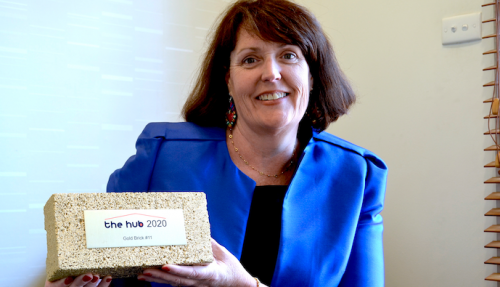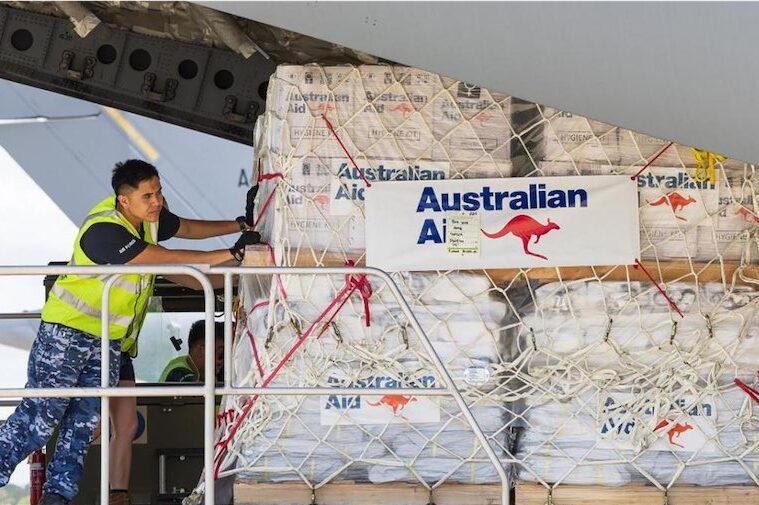
A MAJORITY of Australians with life-limiting illnesses prefer to die at home but very few (about 14 per cent) experience this final wish, according to The Grattan Institute.
In 2020 Palliative Care ACT is hoping to change this with a first-of-its-kind, non-clinical establishment called The Hub.
“The Hub is part of Palliative Care ACT’s commitment to increase the number of people who wish to die at home being supported to do so,” says Palliative Care ACT president Louise Mayo.
“In Canberra we want to increase the number of people with a life-limiting illness able to die at home surrounded by family and friends in a calm and familiar environment.”
The Hub will be a place where those with a life-limiting illness can go for a few hours or a few days.
“Our vision is for a warm, peaceful home-away-from-home,” says Louise, 49, of O’Connor.
“Knowing their loved one is being looked after by caring, experienced staff and volunteers, will mean carers can take a break to catch up on sleep, go to their own appointments, have a coffee with friends or go away for a weekend.”
While The Hub is still in its planning stages, Louise says the concept of it will have three streams.
“One would be respite for the person with a life-limiting illness but it’s very special because the carer can come too,” she says.
The suites will be built with the carer in mind and Louise says there will be another room for the carer in case they don’t want to leave their loved one.
“People with life-limiting illnesses can stay up to seven days giving the carer a chance to attend a family event, go away for work or attend to their own personal health,” she says.
“The Hub will also have a day respite program. And the third part is we will be able to provide opportunities for carers to meet other carers and get support.”
Louise says The Hub will be a source of information about all the support services available for managing end-of-life care at home and provide carers with a place to talk to others sharing the same experience.
The Grattan Institute’s report titled “Dying Well” reveals Australians die at home at half the rate that people do in NZ, Ireland, France and the US.
“The way we’re designing the model of care is we want to be able to share it across the Australian community and more broadly internationally.
“For the carer, it’s going to address that issue of potential isolation and support fatigue.
“For the person wishing to die at home, it’ll increase their chances of being able to do so.
“Our hospital system is under pressure and this will also be able to help alleviate some of that pressure in the system.”
While the location of The Hub is still not finalised, Palliative Care ACT is hoping for it to be in a community setting so people can have access to bus services and shops.
Louise says Palliative Care ACT has undertaken significant research in developing The Hub concept, and is engaging with the ACT and Commonwealth health departments, the ACT community and business sector, and the local and interstate palliative care community in developing its vision.
“One of the major challenges for us is to secure ongoing funding,” she says.
“We’re looking at financial models to be able to source and secure ongoing funding, which will also include patients’ contribution.”
Palliative Care ACT has already raised more than $100,000 at its annual dinner but is still looking for people to buy “bricks” or “brick coin” to see, at the very least, the first sod turned at a site during 2020.
“The John James Foundation has also given us a grant which will take us through to the final planning stages and just prior to the construction phase,” Louise says.
“It takes a tremendous commitment to look after someone who is dying. “Without a break, families can hit a crisis point where they can’t cope any more and their loved one ends up in hospital – a place they’ve expressly chosen not to be and in a system under increasing pressure.”
To buy a brick visit pallcareact.org.au/the-hub
Who can be trusted?
In a world of spin and confusion, there’s never been a more important time to support independent journalism in Canberra.
If you trust our work online and want to enforce the power of independent voices, I invite you to make a small contribution.
Every dollar of support is invested back into our journalism to help keep citynews.com.au strong and free.
Thank you,
Ian Meikle, editor





Leave a Reply